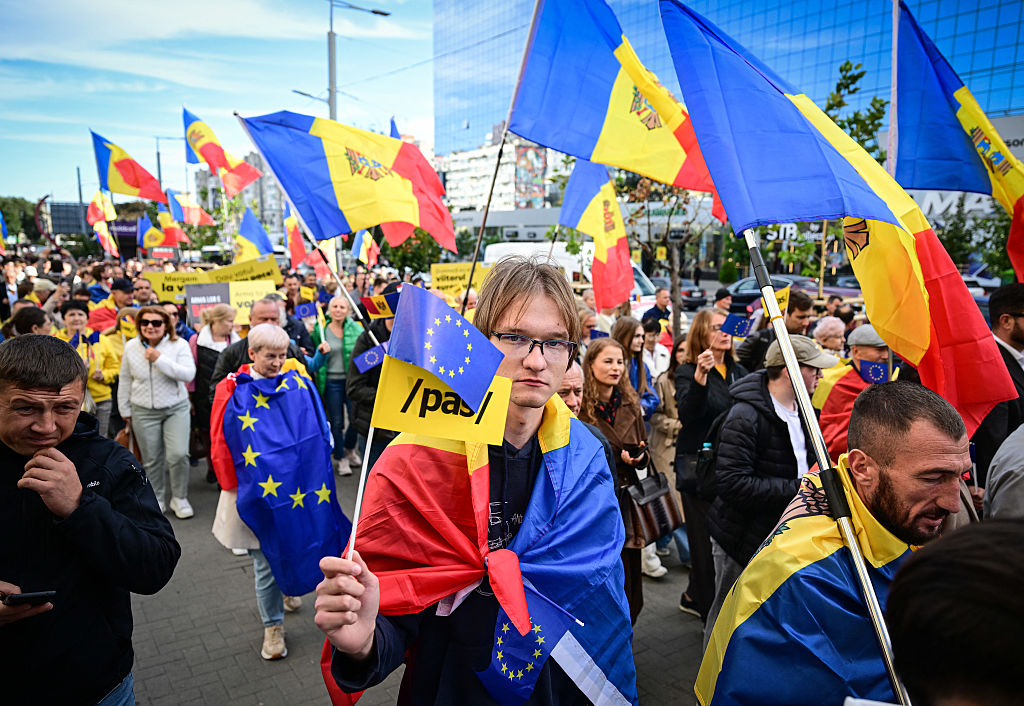You might think that the biggest public health and economic crisis since World War Two ought to be a moment at which the UK government should concentrate on the here and now, forsaking grand projects the better to focus all its attention on dealing with both the coronavirus itself and its wider, monumental, impact on almost every aspect of British life. But, no. Other matters continue, even if preposterously so.
According to Britain’s government, not even this calamity can be allowed to interrupt the hitherto smooth and straightforward passage of Brexit. The ongoing negotiations over the UK’s final withdrawal from the European Union cannot be delayed by anything so trivial as COVID-19. Here, though nowhere else, it is business as usual. The negotiations will be done by December and that’s that. We shall not ask for a modest delay and if the EU demands such a thing, the UK will reject it. Deal or No Deal or Anything Else, it will all be over by the new year. If this was not extraordinary, it might be heroic.
For if we have learnt anything since 2016 it should be that the government has a limited capacity for addressing issues that cut across multiple governmental departments. In ordinary times the department of health can go about its work without paying much heed to what the department for business is up to. But in a situation such as this, where almost every ministry is struggling to adapt and come to terms with the requirement to improvise a response to the pandemic, it beggars belief that those departments also intimately concerned with Brexit can keep on top of that mighty task as the same time as they deal with the impact of the coronavirus.
Brexit is not simple. It is not a mere tidying-up exercise. It is, as its more honest proponents sometimes admit, intended to be a much bigger thing than that; a wholesale recalibration of the British state and its business. Indeed, a persistent Brexiteer complaint, often heard during the sad years of Theresa May, was that the government neither believed in Brexit sufficiently nor dedicated itself to it with sufficient gusto or attention. Brexit should have been front and center, always.
Now, though, it appears as though Brexit and the negotiations preceding a final settlement is such a straightforward matter it barely requires any steering or other form of attention at all. This is a theory more interesting for its novelty than its persuasiveness. Everything else is up in the air save for Brexit.
And even if, by some remarkable feat of concentration, the government was able to devote a full and proper measure of attention to Brexit, it seems as obvious as anything can be that British business cannot. Bandwidth is limited here, too, and the first — and for the time being, only — priority is survival. Precious few companies can prepare for a Brexit many cannot be sure they will be alive to see.
In the context of the coronavirus, of course, even Brexit is a mere trifle. It may be an act of voluntary economic self-harm but it is, when compared to the virus, an eminently more survivable one. Even so, it is a kind of additional examination thrust upon an economy that is not yet prepared for such a test. The prudent thing, this being so, would be to delay the moment of final truth.
For what true harm can come from doing so? Brexit is happening and all but the most tiresome #FBPE have made some kind of peace with it. Besides, the idea of Brexit has always been more significant than anything which might be done with Brexit. The ability to ‘take back control’ is what counts. In that respect, Brexit is an event, not a process.
Indeed, the determination to press ahead with the negotiations, come what may and at any and all cost, is another reminder that the detail of Brexit is less important to its enthusiasts than the feel of it. What counts is getting out; all else, including what comes next, is trivial.
***
Get three months’ free access to The Spectator USA website —
then just $3.99/month. Subscribe here
***
Inconveniently, the detail matters for business. But who, right now, can really muster the energy to be outraged if the current round of negotiations is extended by six months? Or even a year? Only cranks and monomaniacs. Yet, frankly, there is no need to listen to them anymore. The battle is over and the result has been a decisive one. If nothing else, December’s general election was a clarifying moment in that regard. The government has a more than healthy majority; it can afford to extend the transition process at no significant political cost whatsoever. This, it seems clear, would be both the prudent and the desirable thing to do; an extension liable to make matters easier, not more difficult.
Above all, this does not seem the ideal moment at which to be betting big on the invigorating power of more turmoil. The government has earned the political capital to do what it likes with regard to Brexit and the notion, proffered by its spokesmen, that extending the transition period will ‘prolong business uncertainty’ is one for the birds, not sentient adults. At some point, this will become clear to almost everyone, at which point vanishingly few people will object to a modest extension of the transition period and those few who do can be safely ignored. All of which being so, there is nothing to be lost by accepting the need for that extension now.
This article was originally published onThe Spectator’s UK website.

























